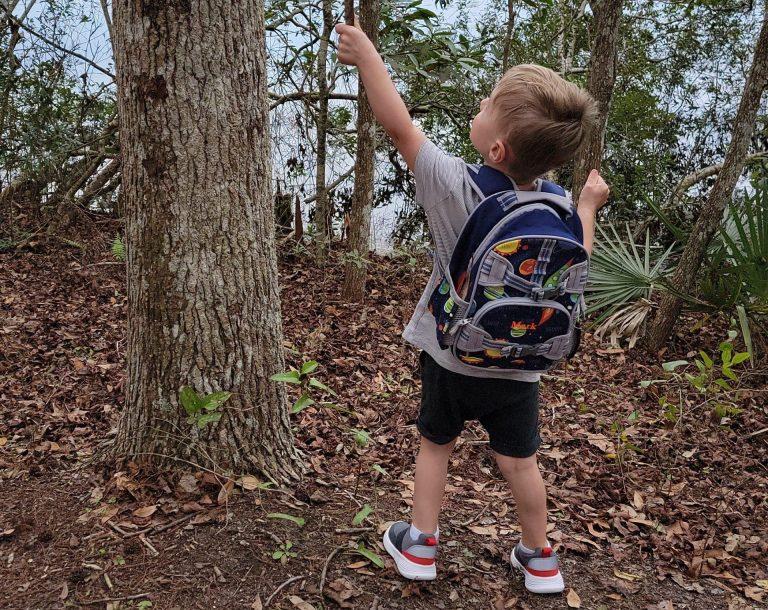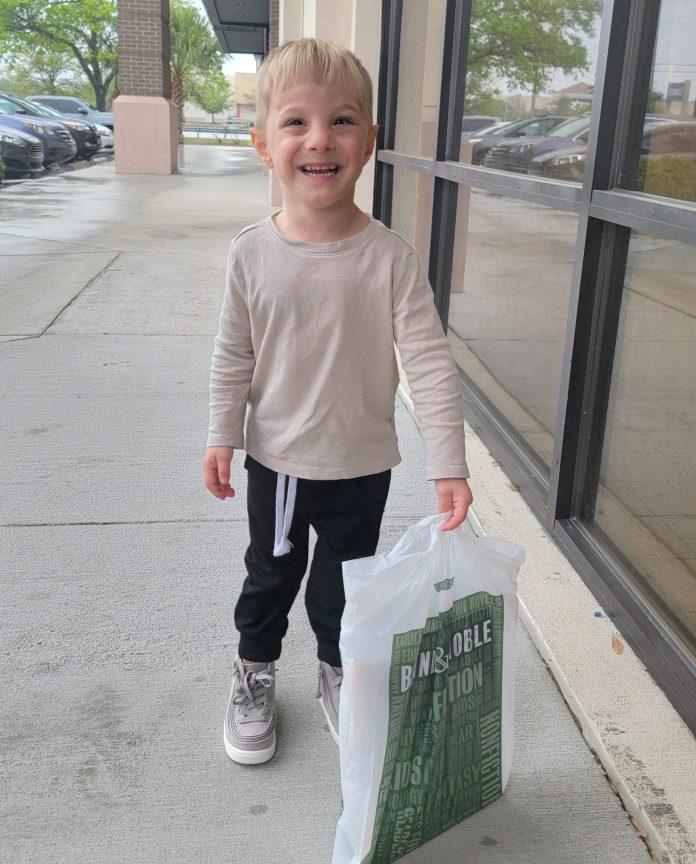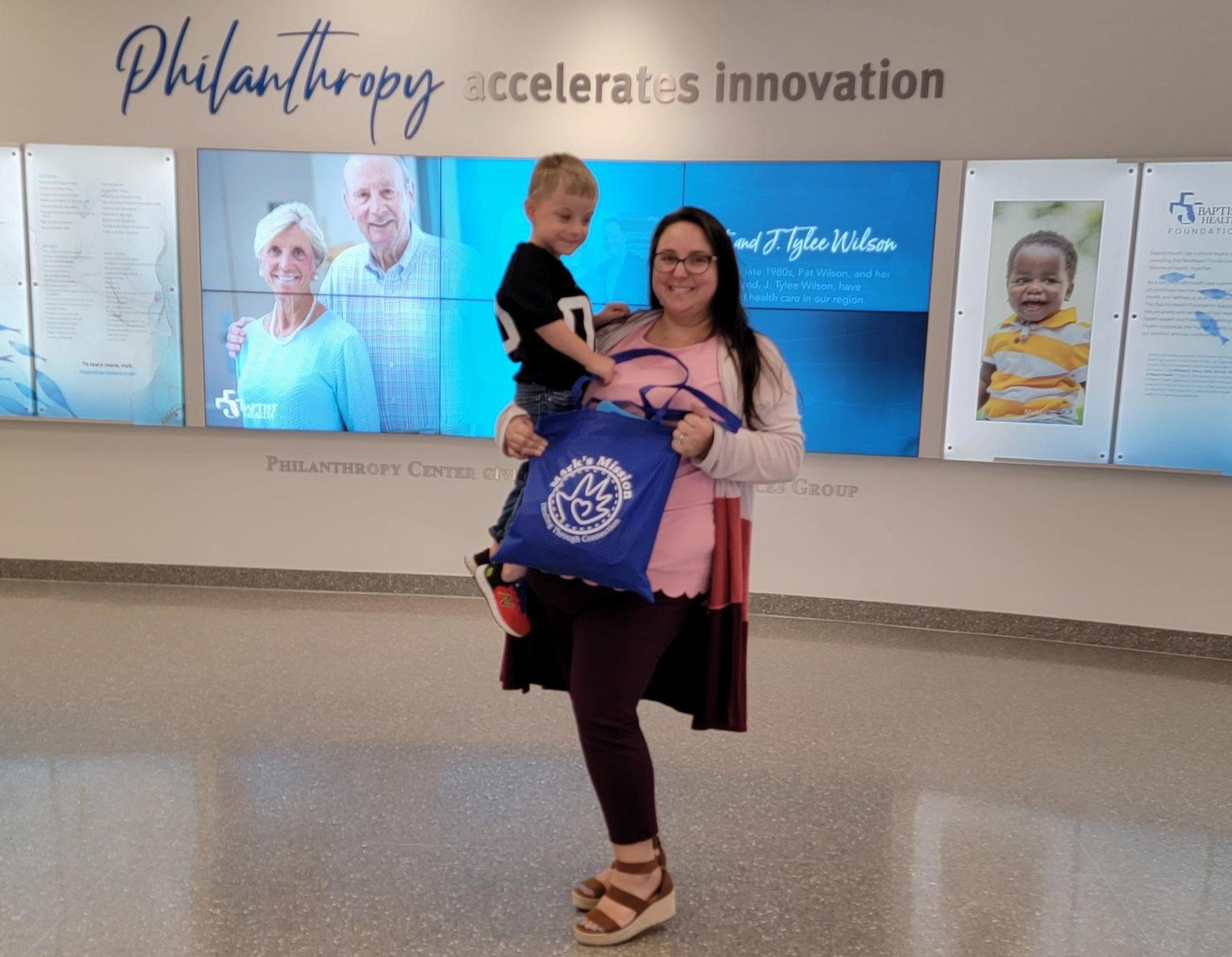 You should never tell someone they are different — even if they are. Chances are, they know they are different without having to be reminded. I know I am, so why remind me? Well, the same goes for children.
You should never tell someone they are different — even if they are. Chances are, they know they are different without having to be reminded. I know I am, so why remind me? Well, the same goes for children.
When Mark received his cerebral palsy diagnosis in October 2020, we weren’t given any information until the next day. I had to contact another doctor’s office to get some form of “official” information, instead of the scary Google articles. After reading the binder filled with invaluable information, I began to feel a little more at ease. There are men, women, and children leading relatively “normal” lives with a CP diagnosis. Then again, what is normal anyway?
In December 2020, Mark was evaluated to “Level” his CP (you can read more about that here). After being told he was a Level 1, it was quickly followed up with, “Just don’t expect him to get an athletic scholarship, be a star player, or play sports at all.”
But what if he WANTED to play sports? Is it my place to discourage that? No. Do I tell him that it isn’t a good idea? No. Do I tell him that other kids might laugh at him? Absolutely not. If I do tell him that other kids may laugh at him, will he really even care? Probably not. Who cares more? Myself or him? Am I making this about me? Maybe.
I guess there are quite a few different avenues we can travel down to reach the same verdict here.
 I think the biggest issue we as parents face, is we forget when talking to our children that every word that comes out of our mouths gets processed through their growing and impressionable minds. We are quick to scold but hesitant to praise. We point out differences and areas that need improvement instead of encouraging good behavior, actions, and ideas.
I think the biggest issue we as parents face, is we forget when talking to our children that every word that comes out of our mouths gets processed through their growing and impressionable minds. We are quick to scold but hesitant to praise. We point out differences and areas that need improvement instead of encouraging good behavior, actions, and ideas.
Telling a child they are different and will be laughed at will open their mind up to negative thoughts about how they are different. You could even be starting a problem that you never anticipated. For example, telling a child their clothes are too tight may lead to body image issues later on down the road because the clothes simply don’t fit the way you want them to. Telling a child they can’t run as fast as others because of a “disability” may lead to hyperawareness of the “disability” itself, potentially further limiting the child.
For the record, I am a firm believer that a diagnosis does NOT define you. It does not limit you or make you “less than.”


Mark started working on standing on one leg in physical therapy. In order to encourage weight shifting from one foot to the other, they introduced kicking a ball into a goal. Mark was learning rule one of soccer. This was fortunate for us because both of us and our families (us being his dad and I) were very involved with our local soccer clubs. Soccer was a huge part of our lives, so seeing Mark take an interest in it just from working in physical therapy was very inspiring.
As Mark became more confident in his ability to kick a ball, he began to dribble it. He also didn’t limit himself to a soccer ball, or even a ball. He would dribble just about anything down the hallway — and he still does. A pillow, a foam block, a hat.
My first thought was to start looking into soccer programs that would work with someone so young. After all, 2 and a half years old is a little young to fully grasp the foundation of soccer. Then I came across one program, local of course, and I saw photos of children running around, laughing, and having fun. I felt this was going to be a great fit for Mark.
I began the registration process, and in the notes section, there was an option to reach out to the coaching staff to ask questions and express any concerns you may have. Cleats and shin guards are optional, but would Mark be able to participate with his AFO brace? Not just right now, but as he gets older, too? If he decided to play in high school, would he be denied the opportunity because of a brace or a device that helps him move around?
 Let’s also not forget that children can be cruel and can say some very rude things. As I’ve mentioned before, it is my job as Mark’s mom to make sure he is strong enough to let words brush off his shoulder but compassionate enough to express empathy and kindness. However, knowing that someday, someone could say something about how he may walk a little differently, or talk unlike others is a huge fear of mine.
Let’s also not forget that children can be cruel and can say some very rude things. As I’ve mentioned before, it is my job as Mark’s mom to make sure he is strong enough to let words brush off his shoulder but compassionate enough to express empathy and kindness. However, knowing that someday, someone could say something about how he may walk a little differently, or talk unlike others is a huge fear of mine.
I dove headfirst into the adventure of Mark’s first soccer season. I was riddled with anxiety, ready to protect my child from snide comments from parents or other children. I was a force to be reckoned with.
His first soccer season allowed us to experience many firsts. It was Mark’s first time playing an organized sport. It was the first time he had the opportunity to make many friends all at once. It was his first time on the field with his dad. It was the first of many games. Mark may have been presented with a limit or two, but it was the first time he has the chance to really push himself. It was his first big motivator. It gave him a sense of independence and introduced him to a new form of socialization before school began. That first soccer season was the start of something great in his life. I wasn’t certain what that could be, but it was the first opportunity of many for him to be very very proud of himself for getting out there and trying his hardest.
He never once let his diagnosis define him. Not once. He wore his brace and he ran. He kicked. He scored. I cheered for every dribble, pass, and goal. There are many nights I stayed up, crying and shaking with fear. Fear that someone would think less of Mark… easily the kindest, sweetest, and funniest kid around, simply because of his diagnosis. At the end of the day, judging someone, not taking the opportunity to get to know a person, or belittling an individual all based on their diagnosis says more about you than it does them. You could be missing out some meeting someone truly wonderful.
Cerebral palsy does not define Mark. It doesn’t define the 764,000 children and adults in the USA with CP. It doesn’t make someone “less than.” It doesn’t come in the same shape and form.
Cerebral palsy, like other characteristics and traits, makes us unique and wonderful. And uniqueness makes our world that much better of a place to live in.
















